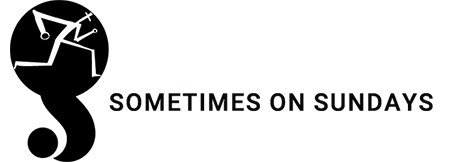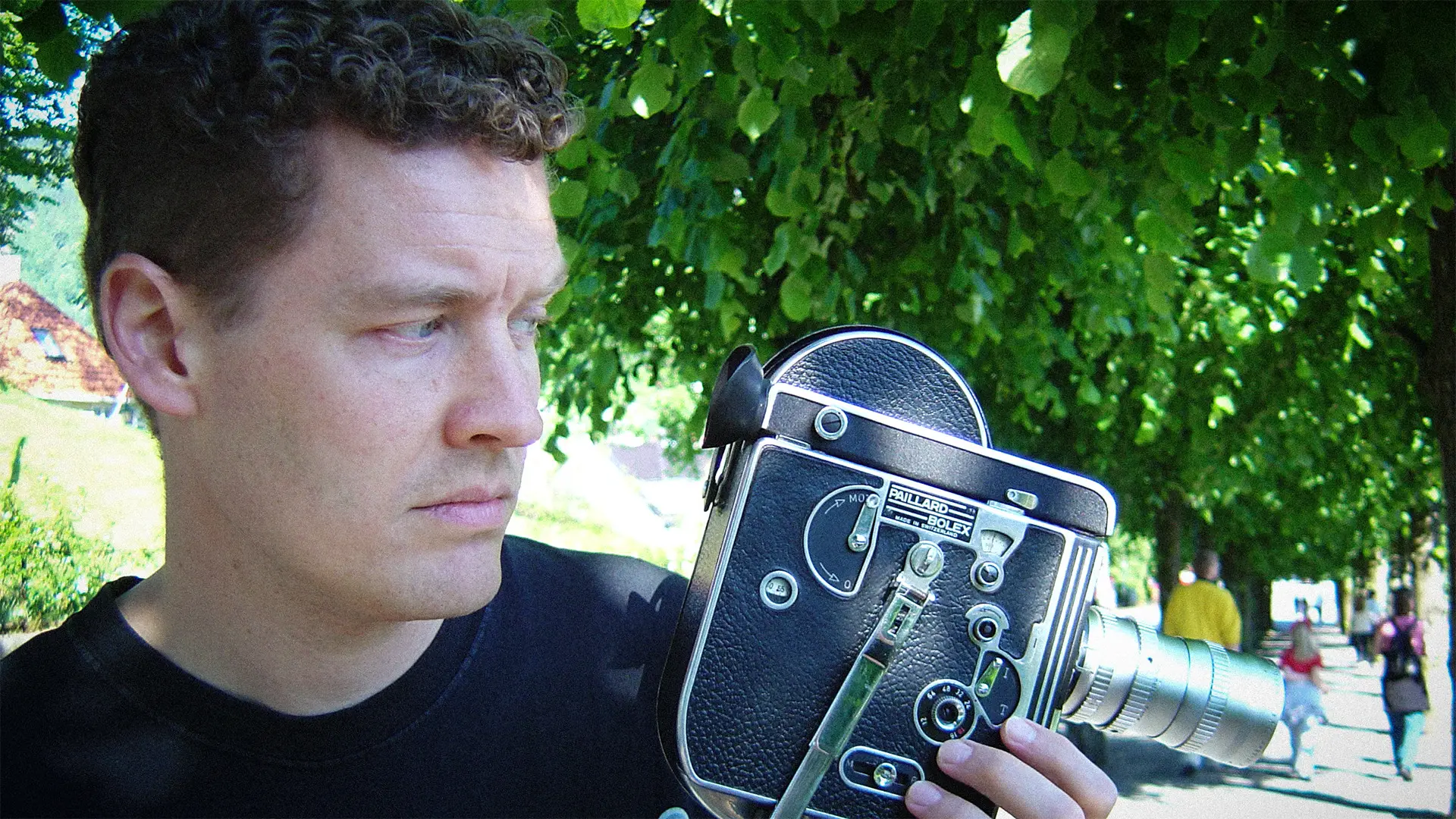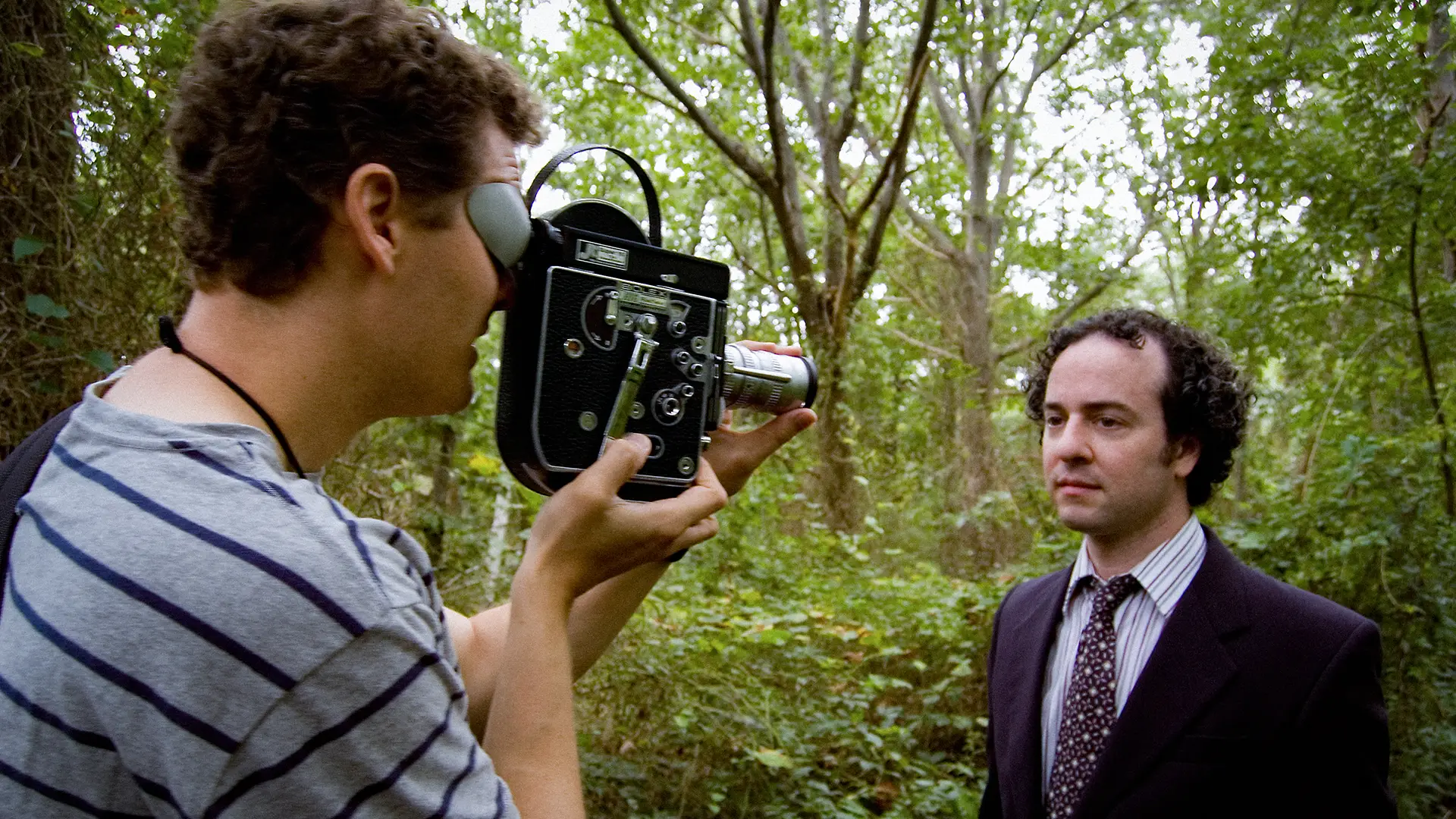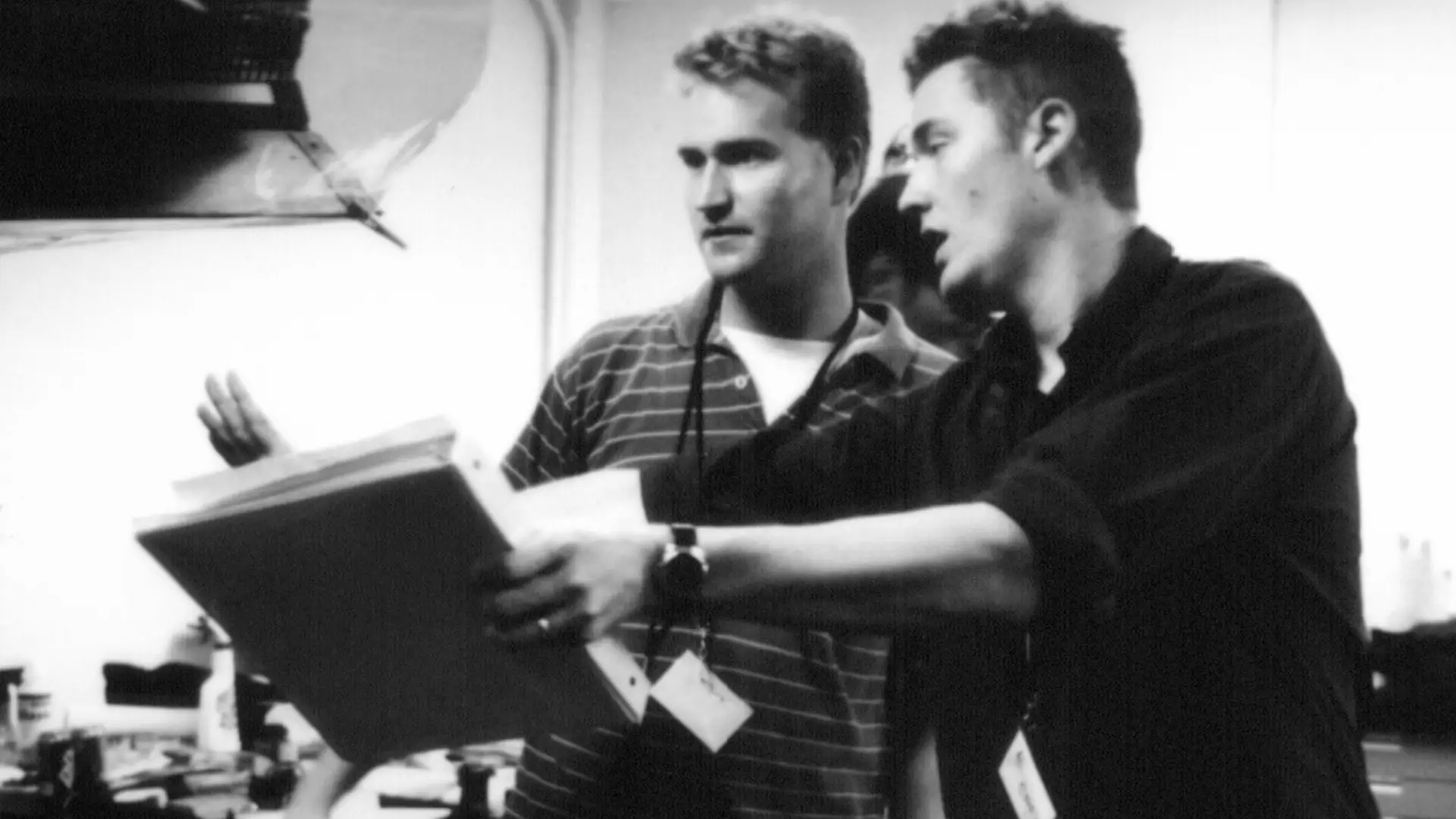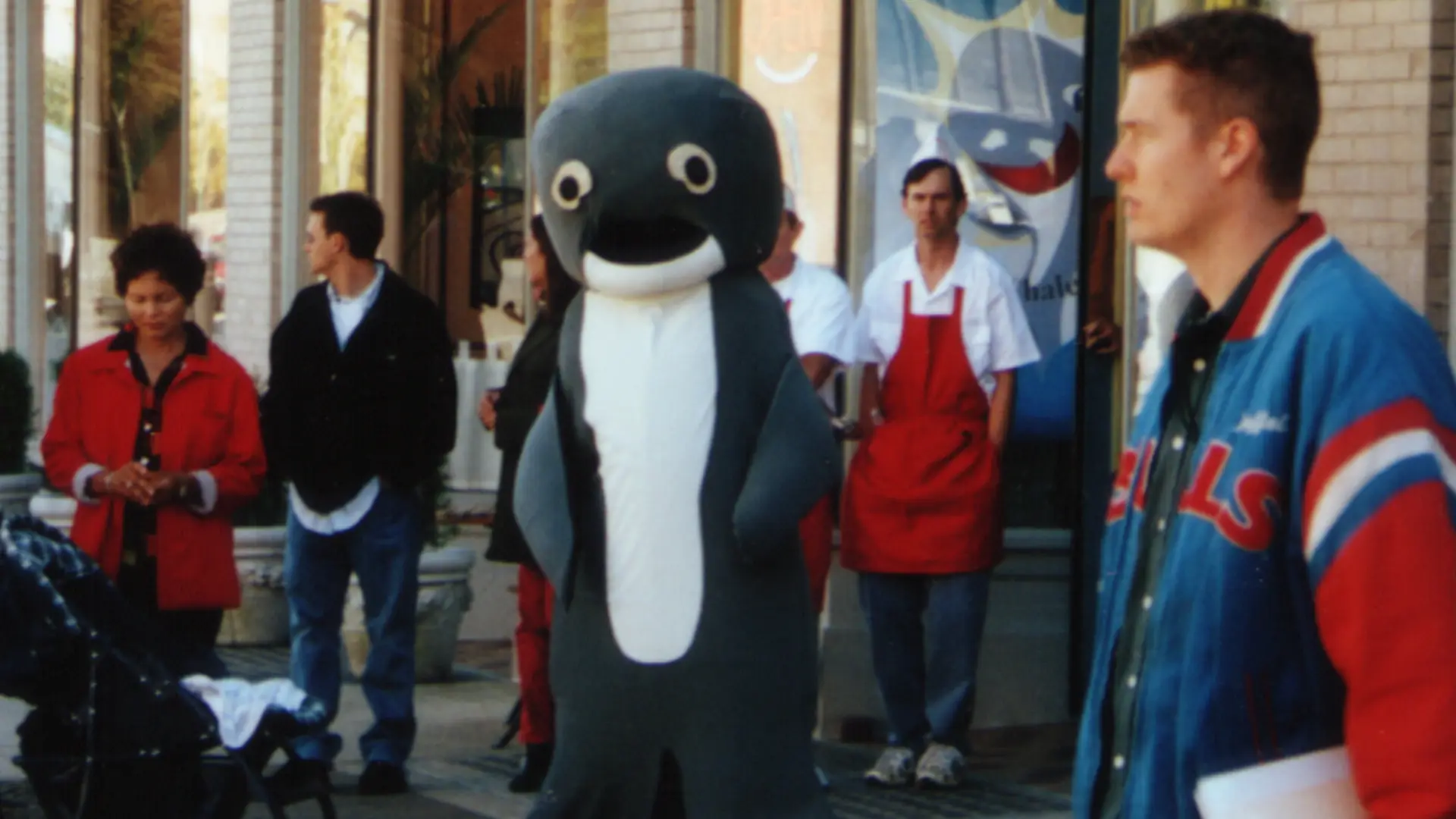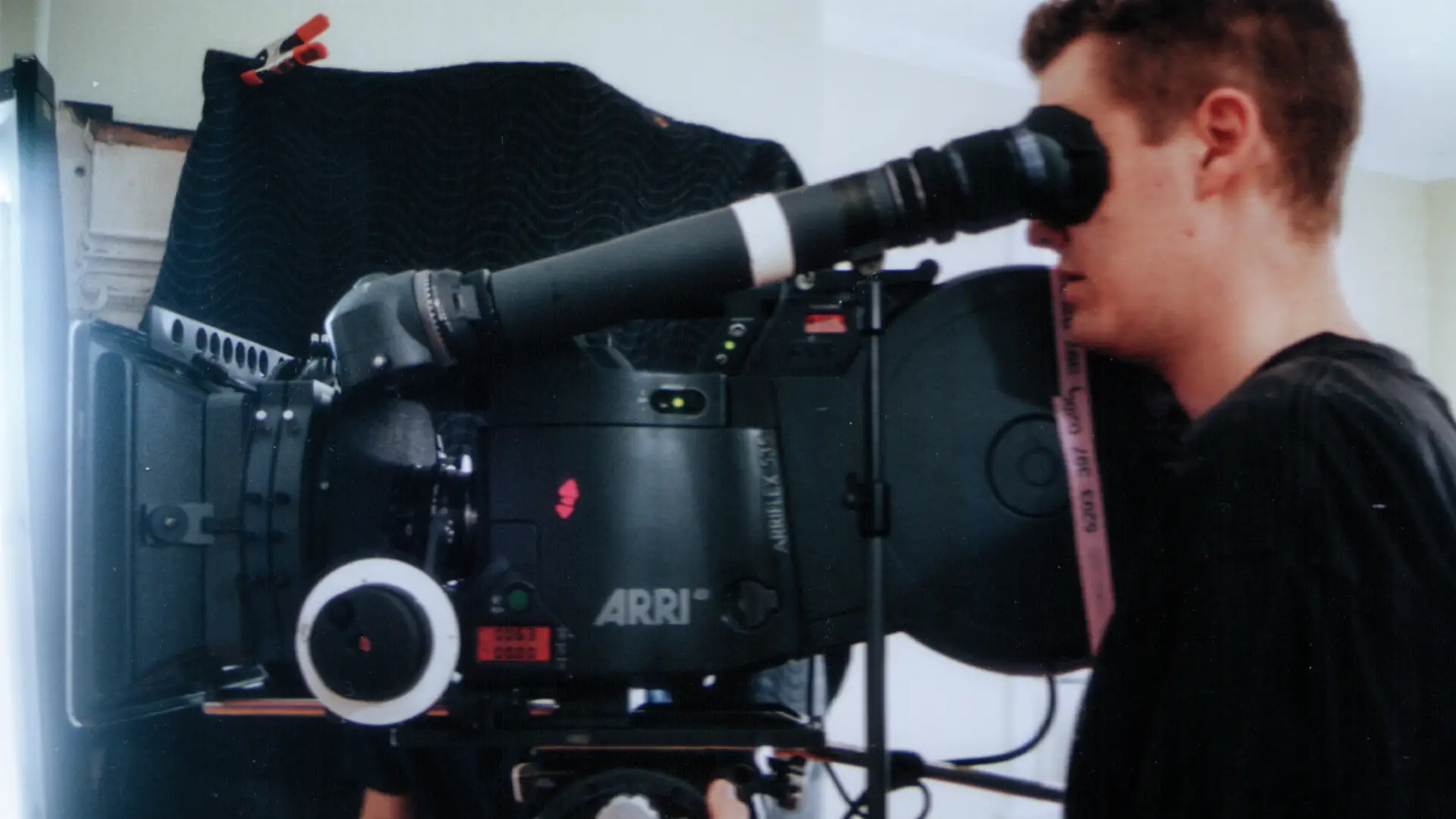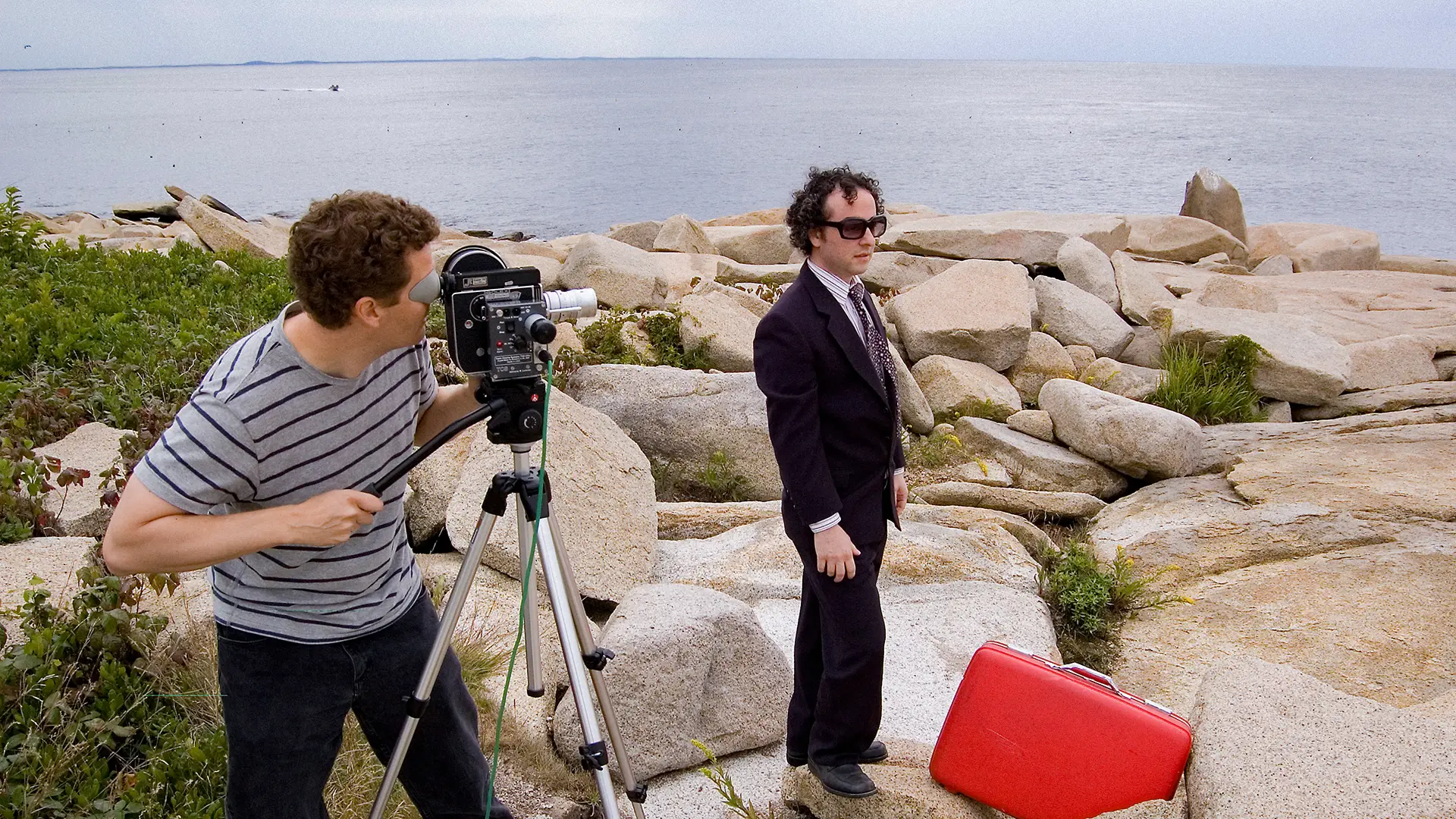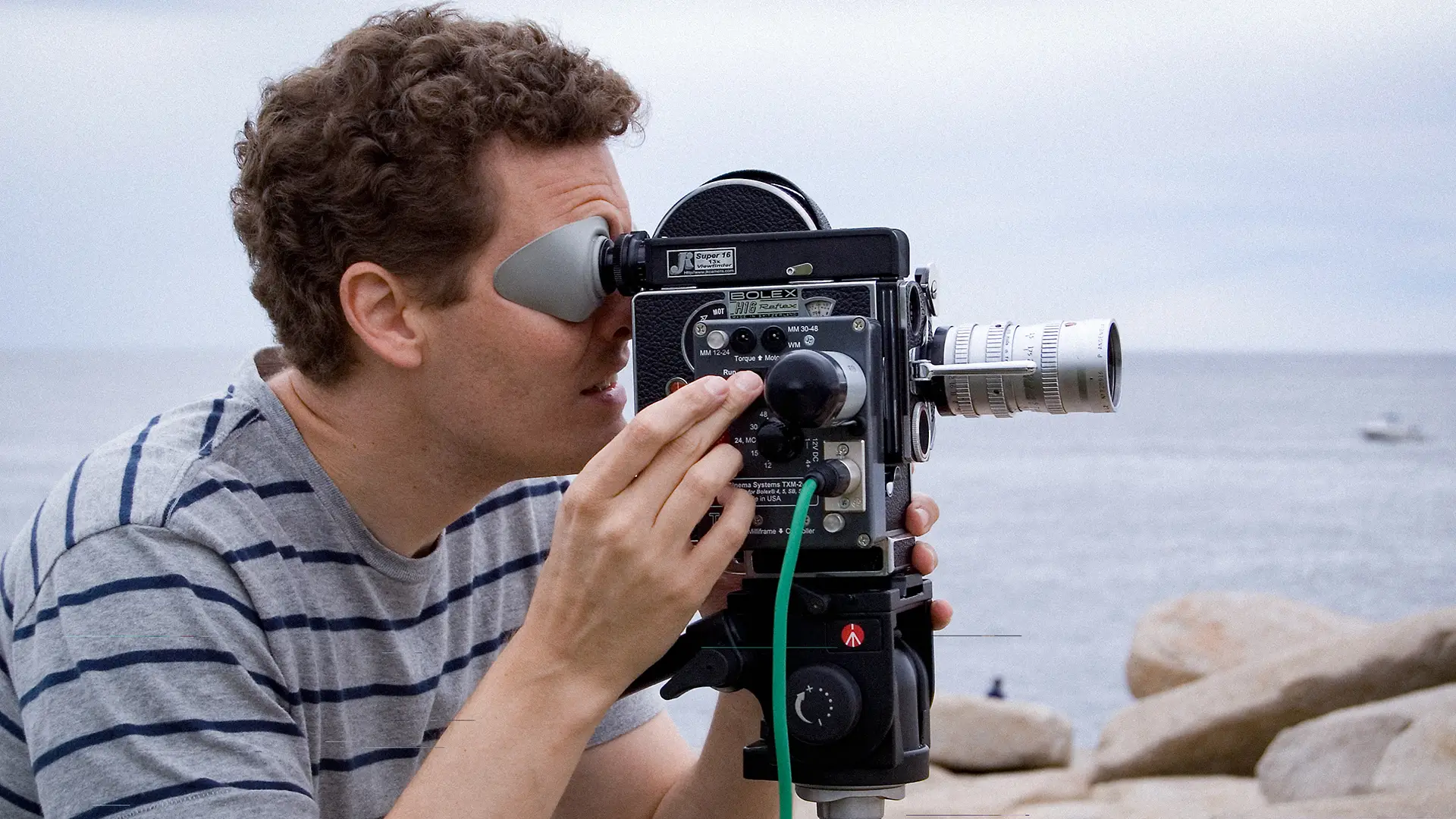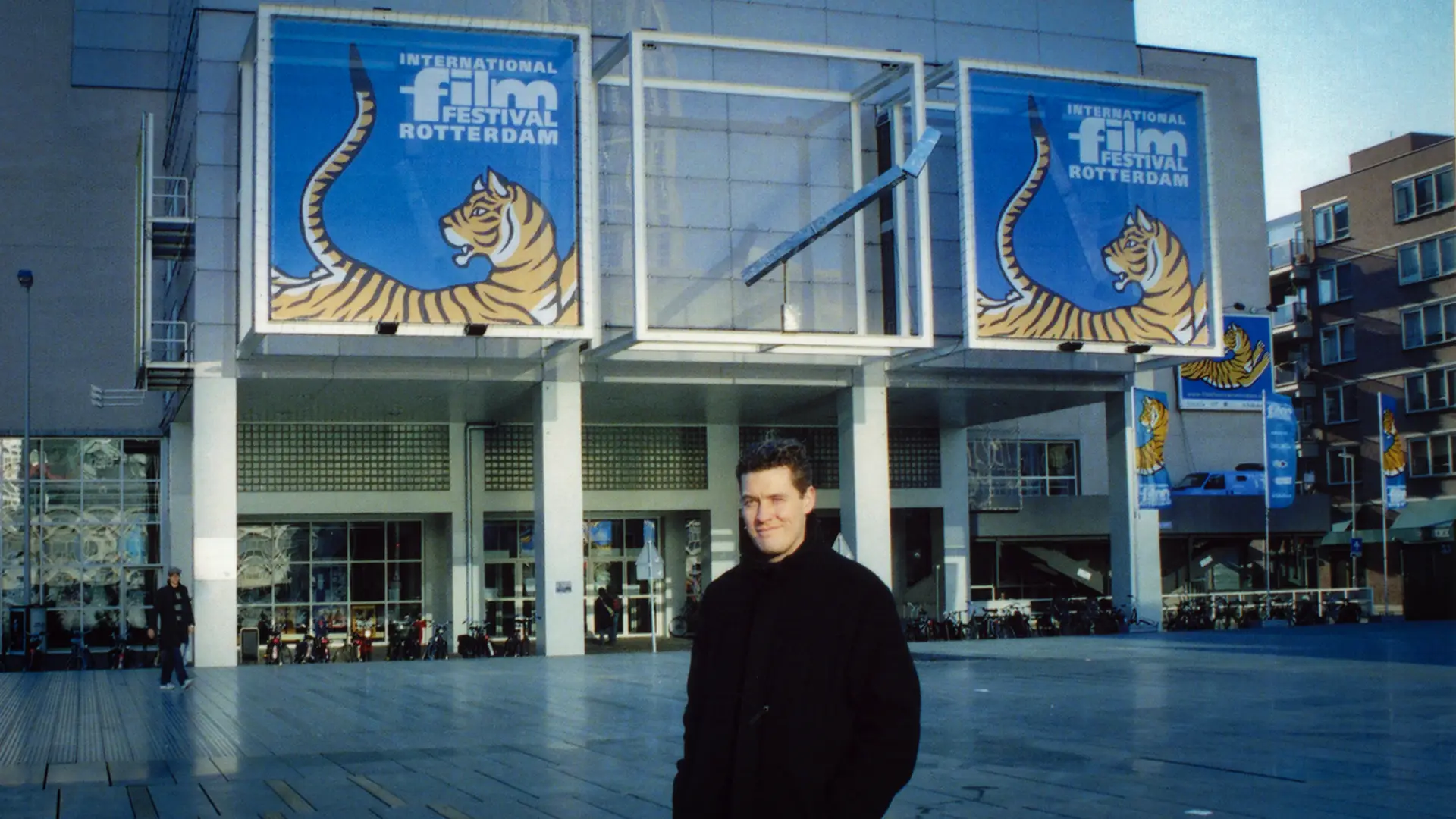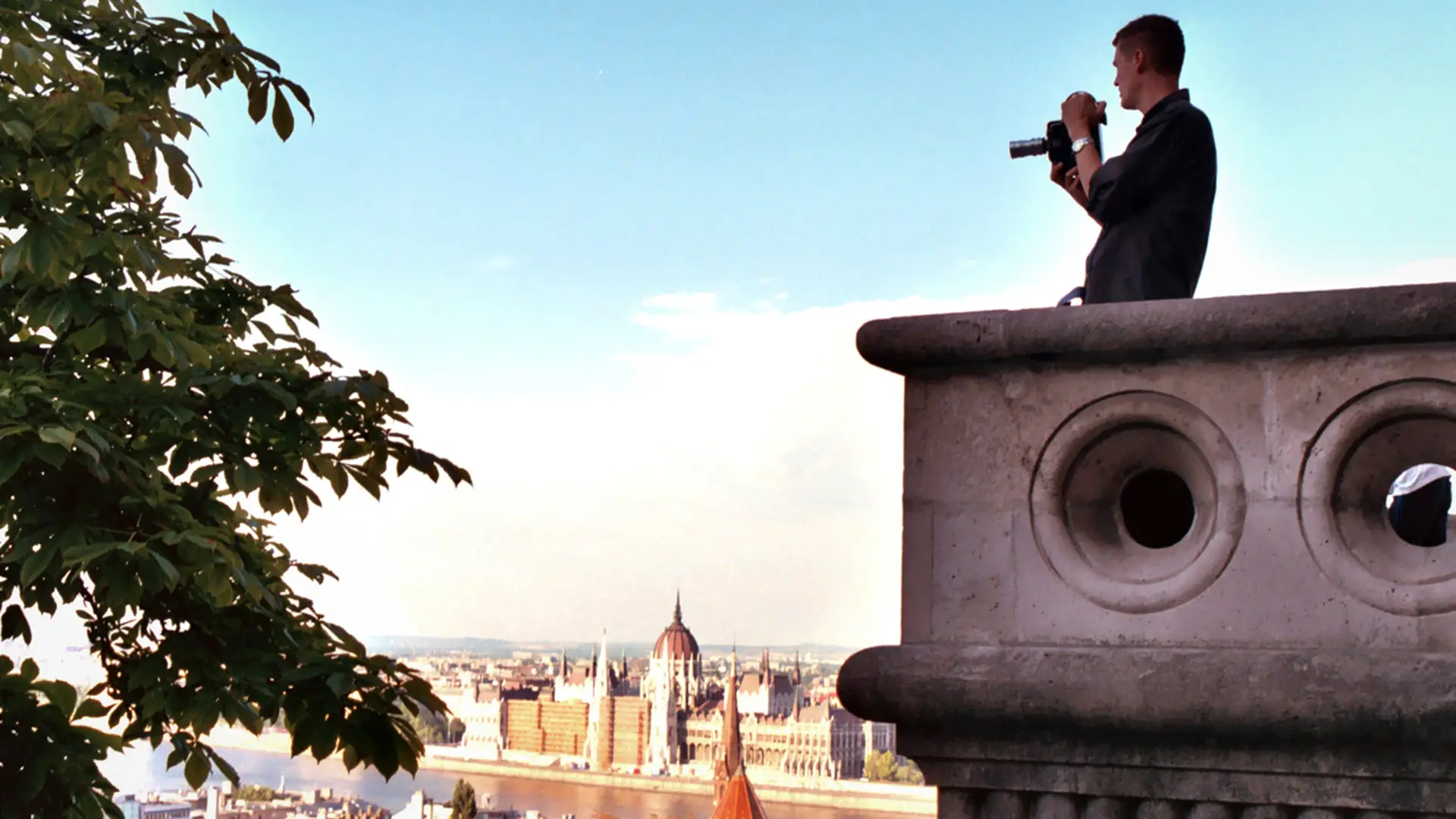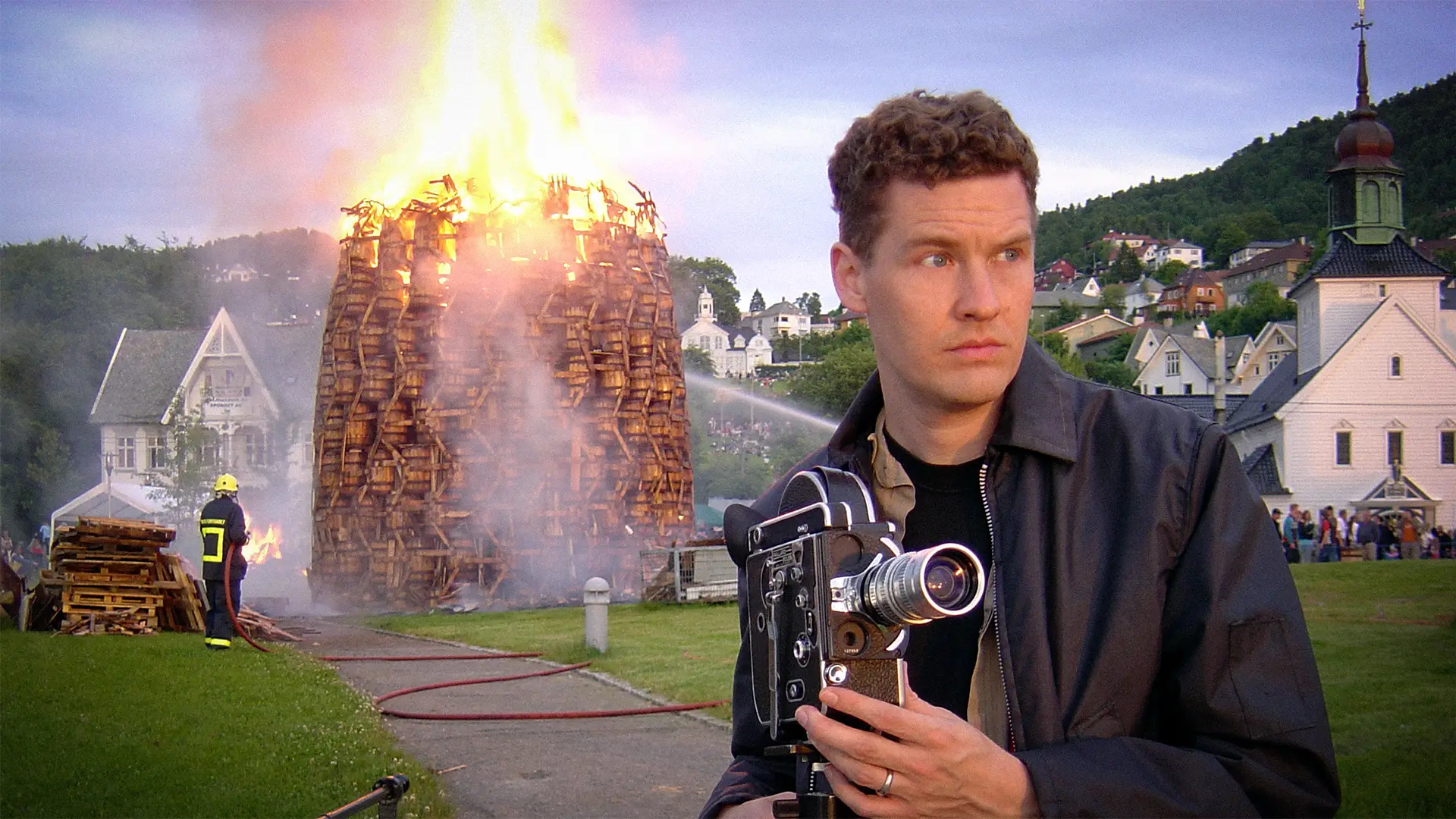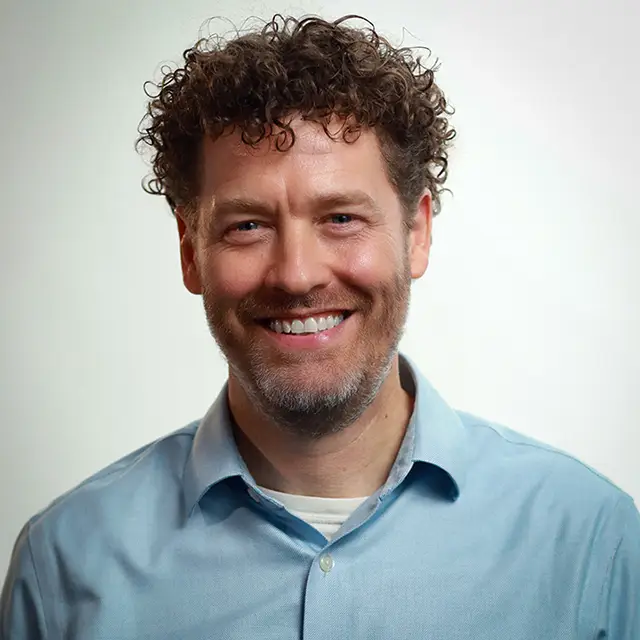
David Baeumler is an artist working in moving image whose work blends experimental collage, narration, and archival interventions to explore memory, perception, and existential uncertainty. Born in Buffalo, NY, he earned a BA in Filmmaking from Bard College in 1992. He then spent years touring in the punk band Durango 95 before working in advertising and media across California, Massachusetts, and North Carolina.
His short films have screened internationally at festivals and galleries including the International Film Festival Rotterdam, Anthology Film Archives, Vienna Shorts, the Biennale of Sydney, the Biennial of Moving Images Geneva, and the Albright-Knox Art Gallery.
Guggenheim Fellow David Finkelstein describes his work as “strange and moving film poems,” noting their layered visual collage, poetic narration, and the charged tension between voice and image.
Baeumler currently lives and works in Raleigh, North Carolina.
“David Baeumler combines his talent for oddball, poetic texts, sophisticated visual collage, and comic-style performances, to create strange and moving film poems. The constant interplay between narration and image, sometimes reinforcing each other, sometimes playing against each other, is a major source of interest and strength in his films.”
– Film critic and Guggenheim Fellow, David Finkelstein
ARTIST SPOTLIGHT
From Short Films Matter:
David Baeumler is a visionary alchemist, transmuting the mundane into the magical and the ordinary into the extraordinary. His work is a symphony of avant-garde and experimental cinema, a daring exploration that defies traditional structures and invites viewers into a world where the conventional is discarded in favor of the profound and the perplexing. With a career marked by innovative storytelling and a keen eye for both the beautiful and the bizarre, Baeumler stands as a beacon in the experimental film landscape.
David Baeumler is a profound force in experimental narratives, whose films push the boundaries of conventional storytelling. His works are a credit to his creative bravery, each one a unique exploration of the human condition, aesthetics, and philosophy. Whether delving into the surreal, the nostalgic, or the deeply introspective, Baeumler’s films challenge, provoke, and ultimately inspire. His visionary approach to filmmaking not only enriches the world of avant-garde cinema but also invites audiences to engage with art in its most profound and innovative forms.
INTERVIEWS
Embracing Uncertainty – by Andrea Maxwell – NewEnglandFilm.com
Dave Baeumler has been making films since 1992 which, according to the website for his production company Sometimes on Sundays, make you think, make you feel, and make you unsure. His latest film Kuboå was recently given a screening at the Rotterdam International Film Festival. Closer to home, two of his films, Safety and I Cannot Understand You, played at the New England Film and Video Festival last October. And this May, Baeumler’s work will be part of Boston’s Balagan Experimental Film and Video Series. Baeumler spoke with NewEnglandFilm.com about his work as anything but a “predictable” filmmaker.
Andrea Maxwell: What advice do you have for an aspiring filmmaker?
Dave Baeumler: Filmmakers need to see as many different kinds of films as they can. From studio films to the avant-garde, you need to see what’s been done before and what inspiration you can draw on for your own movies. Then you need to get out there and start shooting. It doesn’t matter if you can’t afford a crew or professional talent — grab a camera and some film or tape and make something. Just don’t make something you’ve already seen. Challenge yourself to do something unexpected as often as possible. Your film will only be terrible if it’s predictable.
AM: What do you call a predictable film?
Baeumler: Obviously, the most predictable film is the Hollywood formula film — three acts, characters with a simple flaw to overcome, all wrapped up in a 93-minute resolution. You can pretty much time the plot points with a stopwatch. But that’s not the only kind of predictability. A lot of films are saddled with emotional predictability — slice of life films where characters achieve emotional epiphanies or learn valuable lessons. These films really only care about one thing — getting the audience to like the characters. But take films like Mulholland Drive, L’Avventura, Belle Du Jour — you don’t know where those films are going next and that’s pure excitement. And it’s not just because of a bunch of crazy plot twists — these films don’t care if you like the main characters or not, so they have the freedom to deeply explore them, the situations and the themes.
AM: Do you have a common theme in your movies?
Baeumler: Uncertainty. In both my narrative and experimental films, I want to leave things open-ended. I’m not trying to be willfully obscure, I just get bored with neat, forgettable packages. When I watch a movie, if there are loose ends that are so compelling that I think about them a few days later — that’s a successful film. So I try to give audiences both an argument and a counter argument to consider — or a mood that hangs in the air.
AM: Are there any universal themes that can be done endlessly?
Baeumler: Themes can always be done endlessly, because every age can comment on a theme in a different way. It’s plot and character that get stale with repetition. Artists will always find ways to make original statements with universal themes.
AM: How do you choose a project?
Baeumler: Mostly, I write my own films so I do what excites and interests me at the time. Projects usually pop up when I’m in a foreign country because I’m looking at the world in a different way. I’ve have worked on other people’s films though and it’s usually because there’s a specific moment or line that catches me off guard. Recently I decided to direct a short film for this funny script called The Doctor Cares when I read the line, “In this world of seals and oysters, one has to decide who will benefit.” It just hit me. Obviously it wasn’t the only reason I wanted to do it, but there needs to be something that jumps out or a project is not worth the time.
AM: What films or directors have inspired you?
Baeumler: There are a lot. On the more narrative side, I love filmmakers like Welles, Fellini, Buñuel, Lubitsch, Godard, Tarkovsky, Antonioni, Hawkes, Lynch, Olmi and Kurosawa. On the avant-garde side, there are incredible films by Deren, Maclaine, Anger, Kubelka, Hutton, Marker, Tscherkassky, the list goes on and on. There are fantastic filmmakers right here in New England — like Louise Bourque, Joe Gibbons, Abigail Child, Saul Levine and many others whose work everyone should see if they want a total view of what cinema can be.
AM: What kind of a relationship do you like to have with the actors you work with? How much freedom do you give them?
Baeumler: I’d like to say I give actor’s lots of freedom to explore and find new shades that I haven’t thought of — but I’d probably be lying. I usually have a pretty clear idea of how I want things to look and sound and I’ll work with actors to get them into that space. I never line read to an actor or tell them exactly how to gesture — but I will try to conjure up a scenario they can relate to that will get them in the frame of mind I think is right for the scene. If they come up with things that surprise me and still work in the context of the film — I’m psyched. But I’ll still probably do another take the way I see it and decide which way is better in editing.
AM: How do you know when a scene, or a project, is finished?
Baeumler: Valery said, “A poem is never finished, only abandoned.” And I think the same goes for film. Sometimes the hardest thing to say on set is, “Okay we got it, let’s move on,” because I might kick myself in the editing room for not grabbing one more take. And in editing, I struggle between the economy of a scene versus giving it time to breathe. Learning to trust my own taste has been the hardest thing for me to learn because I can second guess anything.
AM: What is the toughest part during the course of making a film?
Baeumler: Other than overcoming my own self-loathing, I hate the technical crap of the process. Writing, directing and editing all have highs and lows, but there’s nothing fun about the minutia of file formats, audio cleaning, computer glitches, etc. I get wistful for the days of editing film on a flatbed or Moviola — but even then there was the horror of optical printing, audio mixing and bad glue splices.
AM: What other interests do you have that influence your films?
Baeumler: Reading. I think books influence my films as much or more than watching films. And, as I’ve mentioned, travel is essential. It’s hard for me to separate filmmaking and traveling in my mind.
AM: Do you like to focus on plot, characters, visual, audio effects, or all they all equally important?
Baeumler: Usually, I start with a theme and work in all the other elements to explore the ideas. Many of my recent films don’t have plots per se, they’re more like essay films — but they’re essays from a character’s perspective. So the focus starts on writing what that character says. Then I visualize how to bring that voice over to life. Sometimes that means mirroring what’s being said, other times I film a visual counterpoint where the viewer has to reconcile what they see and what they hear. And I do spend a lot of time on the sound design to set the mood. Music shouldn’t dictate how the audience should feel at every moment, but it can put them in the right space to connect with what the film is trying to do.
AM: Have you ever been blocked, where you just don’t know where a scene should go or you know something’s off and you’re not sure how to fix it?
Baeumler: That happens to me a lot in the planning phase — when I’m breaking down a script into shots — but not so much on set. By the time I’m shooting, I’ve pretty much worked out how the days are going to go. Sometimes shots don’t work out quite the way they’ve been storyboarded, or performances don’t go well — but these things pass. When I’m working on an experimental piece, I want the shooting to be very open and I don’t plan things out to the letter. That’s probably why I’m enjoying working on experimental films a lot more than narrative stuff lately — it’s just a lot more fun.
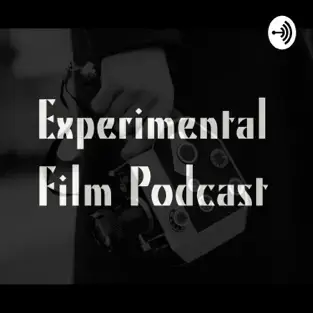
Experimental Film Podcast with David Baeumler
